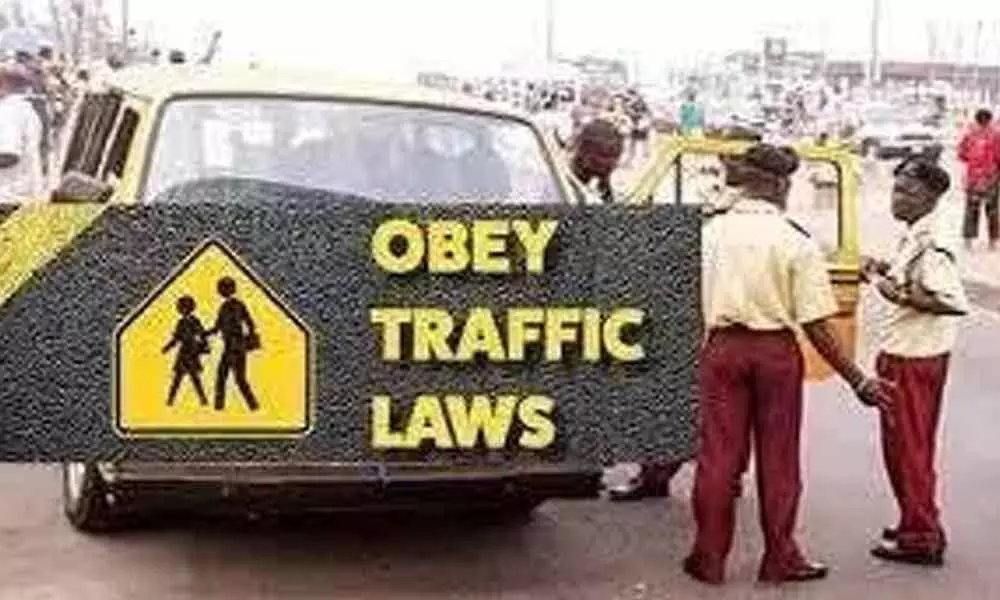Live
- Let’s return to our roots, Venkaiah Naidu tells people
- TG has 234 enemy properties; RR district tops the list
- MEIL dispatches refinery equipment for Mongolia
- 265 SCTPCs take oath in Rachakonda
- Commissioner CV Anand urges dedication as 747 SCTPCs take oath
- 270 trainee PCs passing-out parade held at Cyberabad
- Beware of bacterial predators
- Empowering youth for Viksit Bharat
- Antibiotic Awareness Week (Nov. 18-24): Beware of bacterial predators
- MyVoice: Views of our readers 22nd November 2024
Just In
Traffic offences can be prosecuted under both IPC & MV Act: Supreme Court


A person committing offences under the Motor Vehicles Act like overspeeding and rash driving can also be booked under the Indian Penal Code as both the statutes "operate with full vigour, in their own independent spheres", the Supreme Court has said.
New Delhi : A person committing offences under the Motor Vehicles Act like overspeeding and rash driving can also be booked under the Indian Penal Code as both the statutes "operate with full vigour, in their own independent spheres", the Supreme Court has said.
"With rapidly increasing motorisation, India is facing an increasing burden of road traffic injuries and fatalities", it said.
A bench of Justices Indu Malhotra and Sanjiv Khanna set aside an order of the Gauhati High Court of December 22, 2008, which held that a person booked for over speeding, dangerously driving and other related offences under the MV Act cannot be prosecuted under the IPC.
"In our considered view the position of law is well-settled. This Court has consistently held that the MV Act,1988 is a complete code in itself in so far as motor vehicles are concerned," the bench said in a recent judgement.
"However, there is no bar under the MV Act or otherwise, to try and prosecute offences under the IPC for an offence relating to motor vehicle accidents. On this ground as well, the impugned judgment is liable to be set aside," it said.
The top court said the ingredients of offences under the both statutes are different and an offender can be tried and punished independently under both of them.
"The principle that the special law should prevail over the general law, has no application in cases of prosecution of offenders in road accidents under the IPC and MV Act," it said.
Justice Malhotra, who penned the verdict for the bench, said, "In our view there is no conflict between the provisions of the IPC and the MV Act.
Both the statutes operate in entirely different spheres. The offences provided under both the statutes are separate and distinct from each other.
The penal consequences provided under both the statutes are also independent and distinct from each other".
Dealing with the offences, the bench said there are no provisions under the MV Act which separately deal with offences causing death, or grievous hurt, or hurt by a motor vehicle in cases of motor vehicle accidents.
"Chapter XIII of the MV Act is silent about the act of rash and negligent driving resulting in death, or hurt, or grievous hurt, to persons nor does it prescribe any separate punishment for the same; whereas Sections 279, 304 Part II, 304A, 337 and 338 of the IPC have been specifically framed to deal with such offences," it said.
Offences under Chapter XIII of the MV Act are compoundable in nature whereas offences under Section 279, 304 Part II and 304A IPC are not, it added.

© 2024 Hyderabad Media House Limited/The Hans India. All rights reserved. Powered by hocalwire.com






